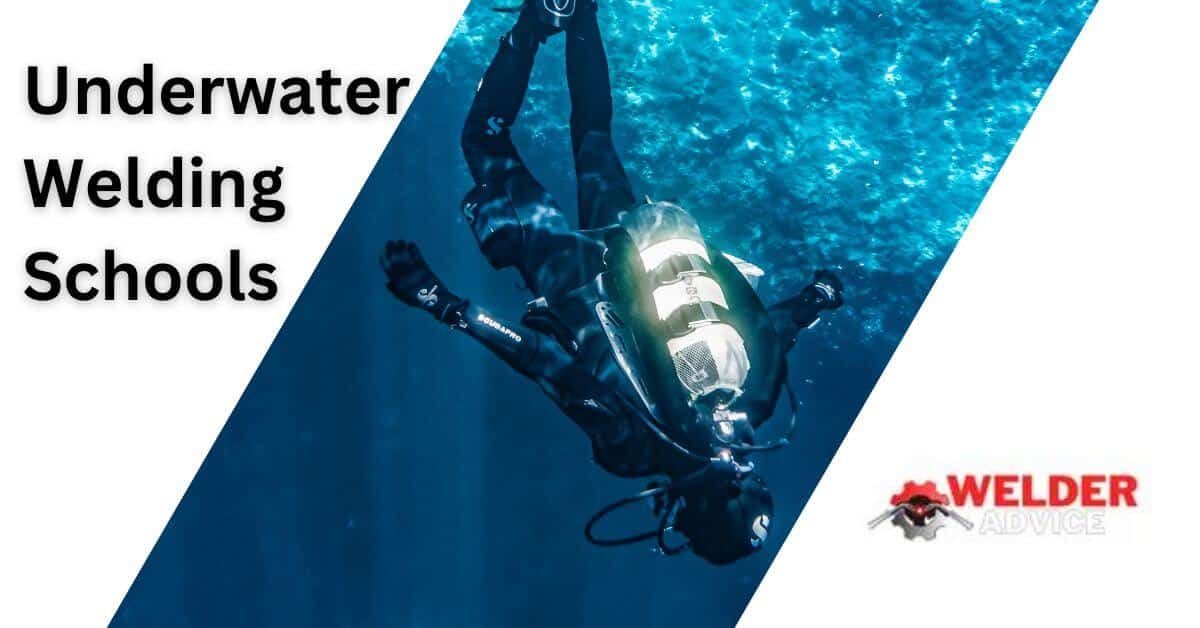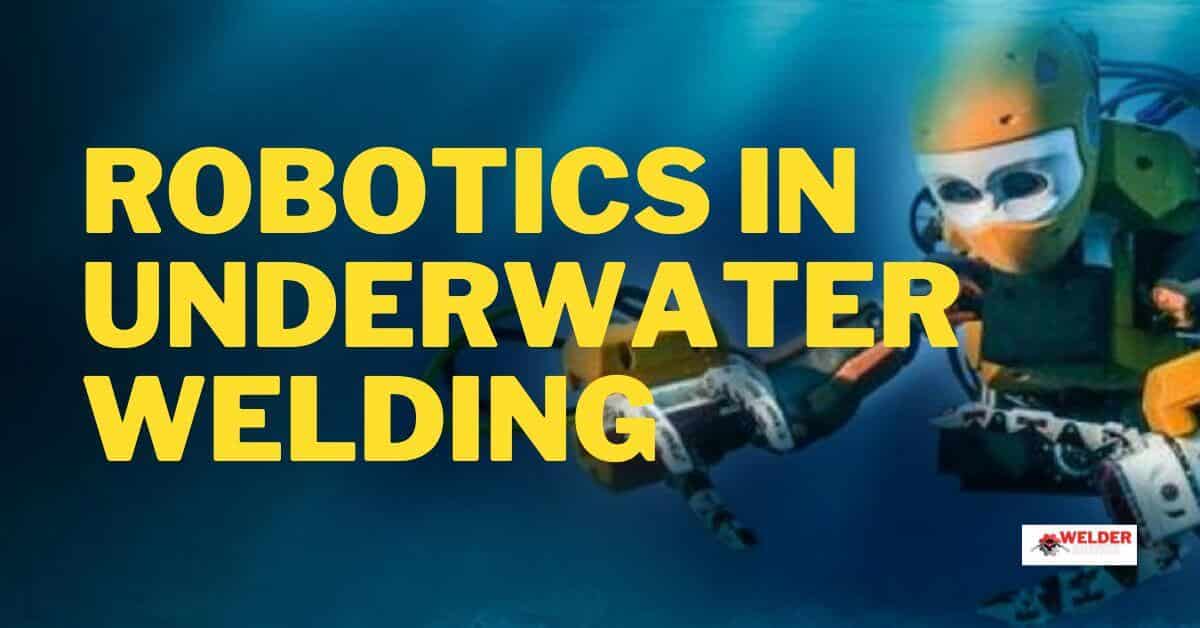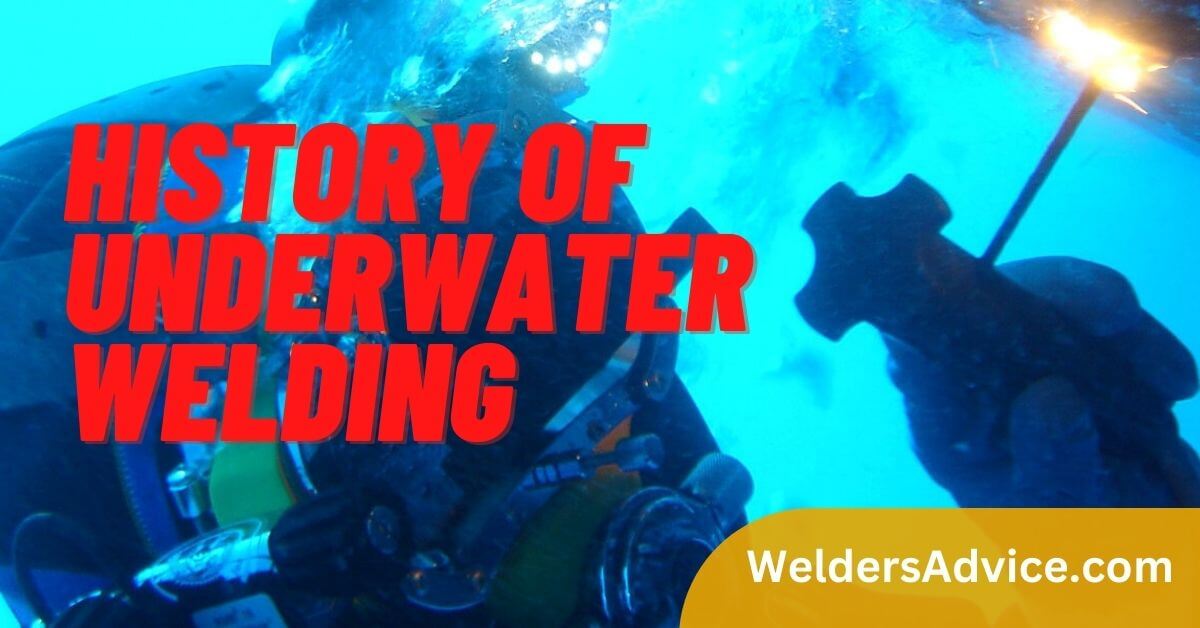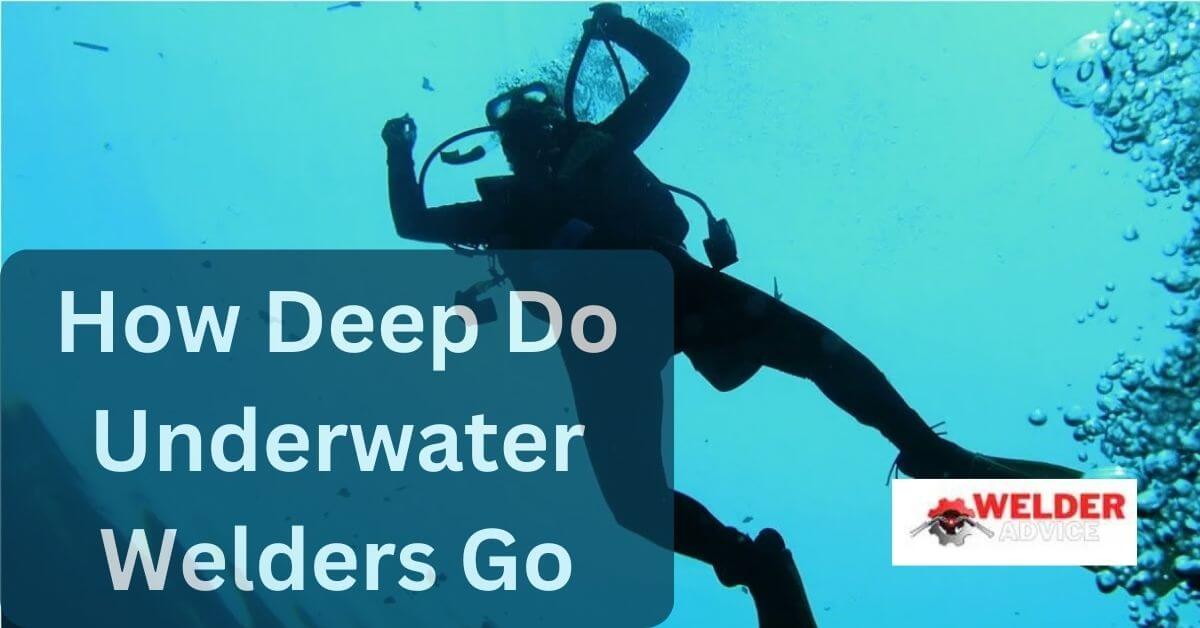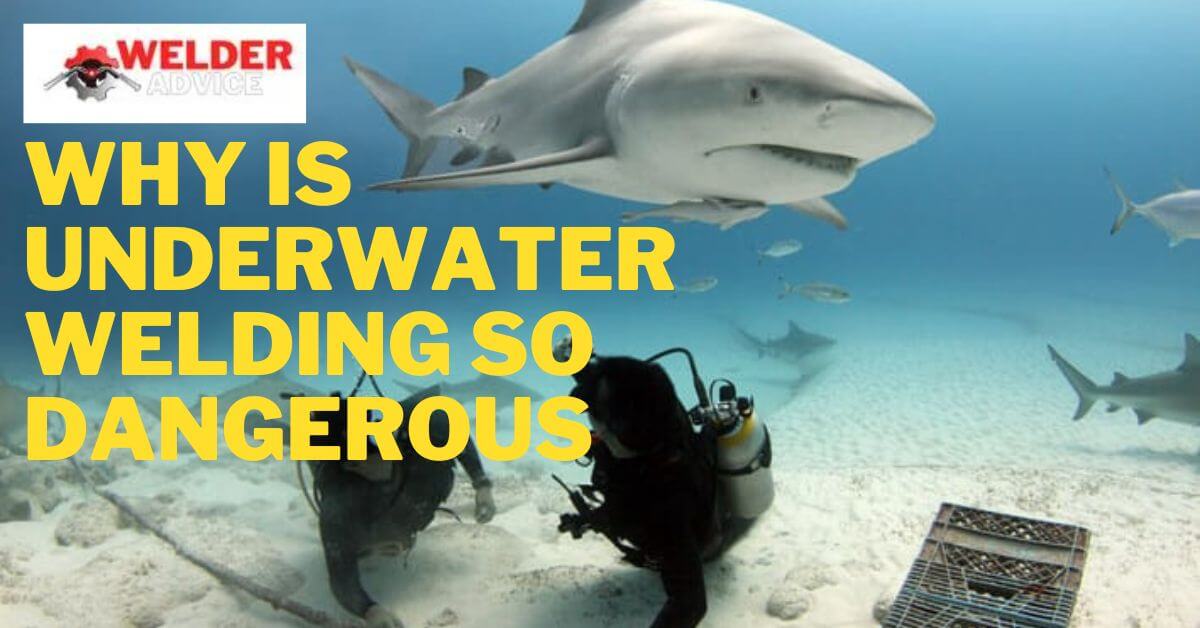Underwater welding is a challenging and rewarding profession requiring a high skill level and training. Those who wish to pursue a career in this field must attend a specialized school that can provide the necessary knowledge and experience. This article will take a closer look at the best underwater welding schools in the world and what they offer.
- What is Underwater Welding?
- Why Attend an Underwater Welding School?
- Best Underwater Welding Schools & Colleges in the USA
- Commercial Diving Academy
- Divers Academy International
- International Diving Institute
- Ocean Corporation
- Texas A&M University
- Divers Institute of Technology
- Other Underwater Welding Schools & Collages
- The Underwater Centre (Fort William, Scotland, UK)
- The Norwegian School of Commercial Diving (Bergen, Norway)
- The Underwater Welding Institute of Canada (Vancouver, British Columbia, Canada)
- Things To Consider When Choosing An Underwater Welding School
- List of Careers in Underwater
- Underwater Welder
- Commercial Diver
- Underwater Construction Worker
- Underwater Inspection Technician
- Salvage Diver
- ROV (Remotely Operated Vehicle) Pilot
- Marine Biologist and Ecologist
- Dangers of Underwater Welding
- Final Thoughts on Underwater Welding Schools
What is Underwater Welding?
A type of welding performed underwater is underwater welding. The process is typically used to repair or maintain ships, oil rigs, and pipelines. To handle the unique conditions of the underwater environment, specialized equipment and techniques are required. The process is similar to regular welding, but it requires specialized equipment and techniques.
Why Attend an Underwater Welding School?
Attending an underwater welding school is essential for anyone who wants to pursue a career in this field. These schools provide hands-on training in the latest techniques and equipment and the opportunity to gain real-world experience through internships and apprenticeships. Additionally, many schools also offer certifications recognized by employers and organizations in the industry.
Best Underwater Welding Schools & Colleges in the USA
Here are some schools and colleges in the US that offer underwater welding training:
Commercial Diving Academy
Commercial Diving Academy, located in Jacksonville, Florida,, offers entry-level and advanced underwater welding training and certifications. They have state-of-the-art training facilities and equipment, and their training is recognized by the Association of Diving Contractors International (ADCI) and the International Diving Schools Association (IDSA).
Divers Academy International
Divers Academy International, located in Linden, New Jersey, offers various welding courses, including welding and cutting, welding and hyperbaric welding, and welding and burning. They also offer a variety of other diving-related courses, such as divemaster, mixed gas diving, and saturation diving. The Association of Diving Contractors International (ADCI) and the International Diving Schools Association (IDSA) recognize the school.
International Diving Institute
International Diving Institute, located in North Charleston, South Carolina, offers a variety of welding courses, including welding and cutting, welding and hyperbaric welding, and welding and burning. They also offer diving-related courses such as divemaster, mixed gas diving, and saturation diving. The Association of Diving Contractors International (ADCI) and the International Diving Schools Association (IDSA) recognize the school.
Ocean Corporation
Ocean Corporation, located in Houston, Texas, offers a comprehensive welding program that covers all aspects of the profession, including welding and cutting, welding and hyperbaric welding, and welding and burning. They also offer diving-related courses such as divemaster, mixed gas diving, and saturation diving. The Association of Diving Contractors International (ADCI) and the International Diving Schools Association (IDSA) recognize the school.
Texas A&M University
Texas A&M University, located in College Station, Texas, offers a welding technology program that includes underwater training. They offer a variety of welding courses, including welding and cutting, welding and hyperbaric welding, and welding and burning. The American Welding Society (AWS) and the National Center for Welding Education and Training (Weld-Ed) recognize the welding program.
Divers Institute of Technology
Divers Institute of Technology, located in Seattle, Washington, offers a variety of welding courses, including welding and cutting, welding and hyperbaric welding, and welding and burning. They also offer diving-related courses such as divemaster, mixed gas diving, and saturation diving. The Association of Diving Contractors International (ADCI) and the International Diving Schools Association (IDSA) recognize the school.
Other Underwater Welding Schools & Collages
The Underwater Centre (Fort William, Scotland, UK)
The Underwater Centre is a leading provider of commercial diver training in the United Kingdom. Diverse courses are offered at the school, including underwater welding. The program includes theoretical and practical components, with students spending time in the school’s 12-meter deep diving pool and wet welding chamber. The Underwater Centre has a strong reputation in the industry, and graduates are highly sought after by employers.
The Norwegian School of Commercial Diving (Bergen, Norway)
The Norwegian School of Commercial Diving (NSCD) is a highly respected institution that has trained commercial divers since 1977. The school’s underwater welding program is renowned and includes theoretical and practical components. NSCD’s facilities are top-notch, including a 12-meter deep diving pool and a hyperbaric chamber. Graduates of NSCD’s program are highly sought after by employers in the industry.
The Underwater Welding Institute of Canada (Vancouver, British Columbia, Canada)
The Underwater Welding Institute of Canada (UWIC) is a leading provider of underwater welding training in Canada. The school’s program includes classroom instruction and hands-on training, with students spending time in the school’s 12-meter deep diving pool and wet welding chamber. UWIC has a strong reputation in the industry, and graduates are highly sought after by employers.
Things To Consider When Choosing An Underwater Welding School
When choosing an underwater welding school, there are several factors to consider to ensure you get the best education and training possible.
Curriculum
First and foremost, it’s important to ensure that the school’s curriculum covers all the necessary topics and skills required for a career in underwater welding. This should include both theoretical and practical training, as well as opportunities for hands-on experience.
Facilities
Another important factor to consider is the school’s facilities. Look for schools with state-of-the-art equipment and training facilities, such as deep diving pools, wet welding chambers, and hyperbaric chambers. These facilities will provide the opportunity to gain practical experience in a safe and controlled environment.
Industry Reputation
It’s also important to consider the school’s reputation in the industry. Look for schools with a strong track record of graduating well-trained and highly skilled underwater welders. Graduates of these schools will have a better chance of finding employment in the industry.
Tuition assistance
The best way to find out what options are available is to contact the school’s financial aid office and inquire about any scholarships or grants that may be available specifically for underwater welding programs. You can also look into government financial aid programs, such as the Federal Pell Grant, awarded based on financial need. You may also want to research private scholarships, often awarded based on factors such as academic achievement or community service.
Location
Consider the school’s location, as attending a school closer to where you want to work may be beneficial. This can save on transportation costs and make it easier to find internships or job opportunities in the area.
Length of Course
Some programs may be completed in as little as six months, while others may take up to two years.
Certificate programs in underwater welding are generally shorter and typically take around 6-12 months to complete. These programs provide students with the basic knowledge and skills needed to work as underwater welders.
There are typically two years of study needed for a diploma or associate degree in underwater welding. In these programs, students receive both classroom and hands-on instruction. They may also cover additional topics such as welding safety, inspection, and engineering.
It’s important to research the different program lengths and options available to you and choose the one that best fits your needs and goals.
Job Placement
When choosing an underwater welding school, it’s important to consider the job placement assistance offered. This can include services such as career counseling, resume building, and job search assistance, as well as networking opportunities with industry professionals.
Many welding schools have a dedicated career services team that can assist students with job placement after graduation. They may also have relationships with employers in the industry and may be able to provide students with internships or job shadowing opportunities while they’re still in school.
Cost
Finally, the cost is an important factor to consider when choosing an underwater welding school. While finding a school that offers the best education and training is important to ensure that the cost fits within your budget. Look for schools that offer financial aid and scholarships to help with the cost of tuition. Around $15,000 is the average tuition worldwide, while $17,500 is the cost of education in the United States.
Also Read:
List of Careers in Underwater
Underwater welding is a highly specialized and in-demand profession that can lead to various career opportunities. Here are a few examples of careers that involve underwater welding:
Underwater Welder
This is one of the most common career paths for individuals who have completed underwater welding training. Underwater welders work on various projects, including ship and boat repairs, oil rig maintenance, and bridge and dam construction.
Commercial Diver
Commercial divers perform various tasks, including welding and cutting, salvage operations, underwater inspections, and maintenance of underwater structures such as oil platforms, pipelines, and shipwrecks.
Underwater Construction Worker
These professionals work on construction projects that take place underwater, such as building bridges, dams, and marine structures. They also work on underwater repairs of existing structures and the construction of offshore oil and gas platforms.
Underwater Inspection Technician
These professionals inspect underwater structures such as ships, oil rigs, and pipelines for signs of wear and damage and conduct repairs as needed.
Salvage Diver
Salvage divers recover lost or sunken ships, vehicles, and other equipment. They also work on the recovery of lost cargo and other valuable items.
ROV (Remotely Operated Vehicle) Pilot
Human divers do not always do underwater welding. Some companies use ROVs (Remotely Operated Vehicles) to conduct welding and other tasks on underwater structures. ROV pilots operate the vehicles remotely and are responsible for the maintenance and repair of the ROVs.
Marine Biologist and Ecologist
They use their diving skills to study marine life and their habitat. They also use welding skills to make marine structures for research and conservation purposes.
Some underwater welders also may work in other welding fields, such as welding in pipelines, welding in construction, welding in oil and gas, etc. Additionally, it’s always a good idea to research multiple options and choose the one that best fits your needs and goals.
Dangers of Underwater Welding
Here are some dangers associated with underwater welding, organized by heading:
- Drowning: One of the most obvious dangers of underwater welding is the risk of drowning. Welders must be skilled swimmers and be able to work comfortably in the water.
- Decompression sickness: Welders may risk decompression sickness if they surface too quickly after working at depths.
- Electric shock: Welders may be at risk of electric shock if they come into contact with live electrical wires or equipment.
- Hypothermia: Welders may be at risk if they work in cold water for prolonged periods.
- Physical injuries: Welders may be at risk of physical injuries such as burns, cuts, and sprains due to the demanding nature of the work and the use of heavy equipment.
- Fumes and heat: Welding generates heat and fumes, which can harm the welder’s health if proper precautions are not taken.
- Confined spaces: Welders may be required to work in cramped or confined spaces, which can be physically demanding and may increase the risk of accidents or injuries.
- Noise and vibration: Welding creates noise and vibration, which can harm the welder’s hearing and physical well-being if proper precautions are not taken.
Final Thoughts on Underwater Welding Schools
Ultimately, it is important to choose a program that best fits your individual needs and goals and will give you the skills and knowledge you need to succeed in underwater welding. I hope this list of underwater welding schools gives you some idea about this. If you have any doubts, feel free to comment below.

